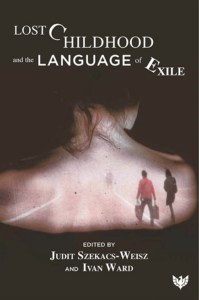 Judit Szekacs-Weisz, PhD, is a bilingual psychoanalyst and psychotherapist. Born and educated (mostly) in Budapest, Hungary, the experience of living and working in a totalitarian regime and the transformative years leading to the fall of the Berlin Wall sensitised her to the social and individual aspects of trauma, identity formation and strategies of survival. She co-founded Imago East-West and later the Multilingual Psychotherapy Centre to create a space where diverse experiences of changing context and language in different cultures can be explored and creative solutions found. In 2001 she organised, with Kathleen Kelley-Lainé and Judith Mészáros, the ‘Lost Childhood’ Conferences in Budapest, London and Paris.
Judit Szekacs-Weisz, PhD, is a bilingual psychoanalyst and psychotherapist. Born and educated (mostly) in Budapest, Hungary, the experience of living and working in a totalitarian regime and the transformative years leading to the fall of the Berlin Wall sensitised her to the social and individual aspects of trauma, identity formation and strategies of survival. She co-founded Imago East-West and later the Multilingual Psychotherapy Centre to create a space where diverse experiences of changing context and language in different cultures can be explored and creative solutions found. In 2001 she organised, with Kathleen Kelley-Lainé and Judith Mészáros, the ‘Lost Childhood’ Conferences in Budapest, London and Paris.
Judit recently co-edited the reissue of Lost Childhood and the Language of Exile with Ivan Ward, featuring new introductory words from both editors and Carol Siegel. Here, Judit discusses why the seminal text remains strikingly relevant today.
A new book which is absurdly more actual now than it was 20 years ago, when first published…
To hold a new book in hands; look at it, touch it, smell it is always an awesome experience.
Holding the second edition of Lost Childhood and the Language of Exile in hand is especially so; not only because somehow the book seems to have matured during these years …even in its appearance; in its shape and colour.
The beautiful photo of Antonella Bussanich, who dedicated it to this volume, make it compelling already by the first sight. The image of young people walking a long road into the unknown projected on our living skin is a most powerful and symbolic image of lost childhood; being uprooted, leaving and going in search of a new, more liveable land, a home where one could settle.
Starting to talk about migration, loss, memory and oblivion, changing contexts, and language opened up vast fields for exploration on the map of unrecognised individual and collective trauma.
Giving voice to those silent narratives proved essential in going behind walls that even classical analysis could not always penetrate – partly due to the fact that in many cases analysts and analysands have been struggling with the same untouchable issues.
The points narrated in our book have not lost their relevance and validity since; actually, these days they are the basic questions of our everyday existence.
Over the last decades the world became an even more difficult place. Alarming changes manifested in the political and socio-cultural climate: the rise of populism, nationalism, neo-fascism, racism, the return of a sense of insecurity and fear, frustration, and rage in countries all over the world. Intolerance, corruption, loss of values and points of orientation more and more explicitly overshadowed new possibilities.
We have witnessed a worldwide human drama since 2019. Being part of it ourselves, we share fears, anxieties, restrictions, and hopes.
In light of these recent events, we need to re-think and re-evaluate the validity of the concepts and images we hold about the basic aspects of individual and collective trauma, including migration and especially the fate of refugees in our time.
It is our professional task to find creative ways enabling us to make sense of recent experiences in order to achieve a better analytical understanding of the external and internal confusion that has been brought about by the immense historical, socio-political and cultural changes of the century past and the century present.
We are not in the position of forming answers yet. It is good enough to ask, listen to as many voices as we possibly can, and discuss …to maintain our capacity of thinking and feeling throughout these dark, surreal times.
The feedback we got over the years spoke about different generations in diverse fields using Lost Childhood as a kind of a resource book; not only in clinical practice, but academic studies, research, social work, teaching and research.
We believe this beautiful facsimile second edition of Lost Childhood serves our original aims as well as the challenges of the present day.
Our message re-launching Lost Childhood is especially to the new generation of readers.
We would like to encourage them to continue our work, to turn with open heart and mind to essential narratives of our times and to look at them applying binocular vision; a parallel testing of external and psychic reality in order to redefine our place in the world and the place of the world in the human mind.
Ever since the first publication of our volume there has been a continuous demand for further copies showing that it has touched professional and ‘just’ interested readers alike.
Lost Childhood and the Language of Exile is available from our website now.


